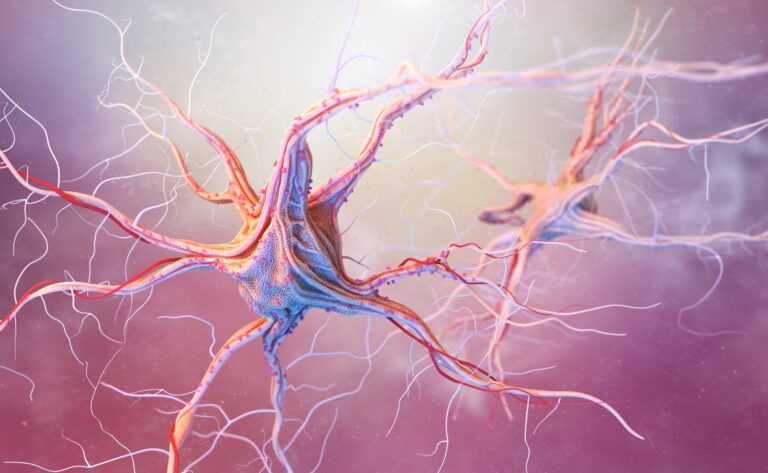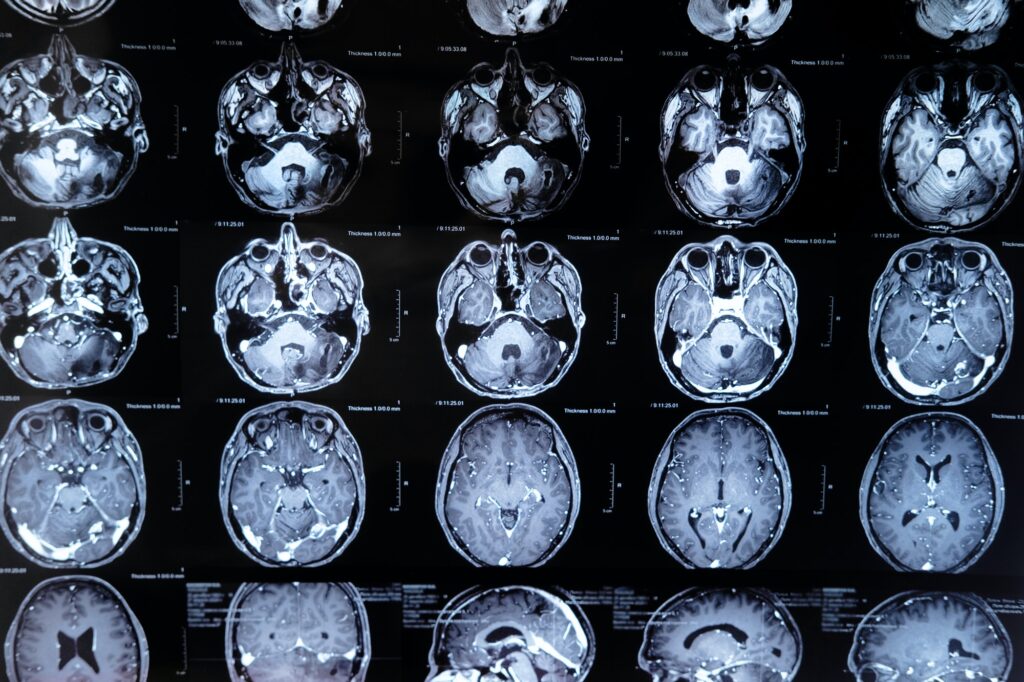
5 Menopause Support Complex Supplement to Help Ease Symptoms
Menopause support complexes are dietary supplements with herbal extracts and vitamins aimed at alleviating symptoms during menopause
We are all familiar with the saying “Early to bed, early to rise makes a man healthy, wealthy, and wise”. That is because sleep has for centuries held mysterious and largely unexplored properties. Now, with modern science and technology, however, we can begin to unlock the role of sleep in the production of neurotransmitters. New evidence suggests that when we rest and relax, chemical modifications to certain neurotransmitters may play a key role—along with chemical changes in the brain itself—in how we process emotions, memory recall, and even how we handle stress. In this post, we will take a closer look at what neuroscience is revealing about these complex processes, and the implications for how we manage our mental endurance and physical wellbeing.

The role of hormones in neurotransmitter production is an important factor in understanding the effects of sleep on this process. Hormones are produced by endocrine glands and can affect many different systems within the body, including the production of neurotransmitters.
Endorphins, for example, are naturally released from the pituitary gland during pleasurable activities such as exercising and sleeping, and can specifically stimulate the release of various neurotransmitters. Serotonin is largely produced in the gut via activation of serotonin-producing cells by nerve cells, but growth hormone also has some effect in producing serotonin. Melatonin is a hormone that is primarily secreted by the pineal gland located in the brain, which can influence circadian rhythms and neurochemical changes such as dopamine and serotonin release and receptor expression. Testosterone has also been shown to affect dopamine levels.
There has been debate concerning whether increased hormone production due to lack of sleep could lead to increased neurotransmitter production, or conversely if lack of sleep leads to lower hormone production which could affect a decrease in neurotransmitter production. On one side of the argument, short-term sleep deprivation has been associated with increases in cortisol secretion which could contribute to higher levels of dopamine and serotonin neurotransmission. Also, adenosine produced when we are awake appears to be important for stimulating maximal release of hormones like growth hormone as well as modulating serotonin synthesis. On the other hand, prolonged sleep deprivation can lead to decreased cortisol production which could then result in lower dopamine and serotonin releasing activity, thereby decreasing overall neurotransmitter production.
Overall, research shows that hormones play an important role in regulating both short and long-term sleep deprivation responses as they affect various aspects of neurotransmitter production. The next section will delve further into how lack of sleep can impact these hormones and subsequent neurotransmitter production processes occurring throughout our body.

The effects of an inadequate amount of sleep on neurotransmitter production have been studied extensively, with growing evidence suggesting that even one night of disturbed or reduced sleep can lead to impairments in neurotransmitter production and function. A study conducted in 2014 found that a single night of sleep deprivation influenced not only the levels of serotonin but also the production rate of dopamine. Significant decreases in the synthesis rate of both neurotransmitters were observed, with dopamine decreasing by almost 20% and serotonin down by 30%. The same study suggests that this decrease in dopamine was associated with lower activity of key enzymes involved in its synthesis, suggesting a direct effect on enzyme interface.
Further studies have also reported significant reductions in acetylcholine, histamine, and norepinephrine when fewer than six hours are spent sleeping each night. This can significantly affect mood regulation, attentional focus, impulse control, and energy regulation. Additionally, lack of sleep has the potential to compromise decision-making capabilities due to the decline in recalled memory associated with these neurotransmitters.
On the other hand, research has shown that many individuals generally adapt to sleep deprivation over time, as their body is able to adjust and maintain homeostasis despite lacking sufficient restful sleep. It appears that during longer term periods of insufficient restorative sleep, neurochemical changes may be counteracted by increased arousal level or a heightened release of stress hormones such as adrenaline and cortisol associated with alertness and wakefulness.
Although there is evidence both for and against an acute decrease in neurotransmitter production due to lack of sleep, it is clear that inadequate amounts of restful sleep can still have severe impacts on general health and wellbeing regardless. To understand the full extent of implications on neurotransmitter production caused by a lack of sleep, further research should attempt to differentiate between short-term effects such as those observed in the above studies and long-term effects experienced by people who chronically fail to get sufficient rest.
These results suggest the importance of proper restful sleep for neuronal health and proper functioning; disruption to this process can lead to far-reaching consequences beyond dopamine and serotonin regulation. In this next section we’ll investigate some of these implications at a more macroscopic level: examining how a lack of sleep affects the central nervous system.
The effects of sleep on the central nervous system are varied and far-reaching. Adequate sleep has been widely accepted as an essential form of rest for the mind and body. Sleep deprivation, however, can have significant adverse effects on the central nervous system, impeding its ability to regulate and optimize neurophysiological functioning. Insufficient sleep can lead to a decrease in attention, alertness, and concentration; impair cognition, deteriorate emotional regulation, and reduce working memory capacity. Studies have also shown that just one night of total sleep deprivation can reduce cognitive performance so severely that it equals nine nights of limited sleep. These findings cite inadequate sleep as a risk factor for more serious disorders such as depression, anxiety, and insomnia.
On the other hand, adequate amounts of deep-sleep specifically aid in strengthening memories and optimizing learning capabilities. Most of these cognitive benefits occur during the nighttime while sleeping because it is during this period when the hippocampus (the region in the brain responsible for memory) plays a significant role in consolidating short-term memories into long-term ones by transferring stored information from one side to the other. The synapses between neurons become stronger when receiving waves of neurotransmitter signals during sleep, thus aiding in overall neural communication processes and improving whole brain function over time with consistent quality sleep each night.
With all these aspects in mind, it is clear that both adequate amounts and types of sleep are crucial for optimal functioning in both the short and long terms in regards to the central nervous system. Taking a closer look at how changes or disruption to certain neurophysiological processes can potentially alter neurotransmission levels will shed light on some of these effects further. This brings us to our next section which delves further into the impacts on important brain chemicals when considering these neurophysiological disruptions caused by lack or quality sleep.

Sleep has long been known to be an important factor in a person’s mental and physical wellbeing, but studies and research have recently shown that there is a much more intricate role it plays in the overall production of neurotransmitters. The effects sleep has on various brain chemicals are complex and may vary from individual to individual, but scientists have found evidence to suggest that a wide variety of neurotransmitters may be affected by the amount of sleep an individual gets.
Serotonin, for example, is strongly linked to sleep levels and helps regulate things like mood and behavior. Inadequate amounts of sleep can lead to a decrease in serotonin levels which can contribute to low moods or even depression. Additionally, melatonin—the neurotransmitter responsible for regulating our circadian rhythm—is also highly dependent on sleep levels, as it is released during periods of darkness, such as night time when we should be sleeping. When someone does not get enough sleep at night, melatonin levels will remain low leading to poor mood regulation and poor quality sleep.
At the same time, some studies have suggested that while lack of sleep may lead to some decrease in neurotransmitter levels, these deficits can be made up with shorter naps during the day. For instance, dopamine—a neurotransmitter involved with reward based activities—has been seen to increase after a short nap period even when initial amounts were decreased due to lack of night-time sleep. Some scientists believe that certain types of napping can play an important role in replenishing neurotransmitter levels when traditional night-time sleeping patterns are disrupted.
However, others believe more research still needs to be done about this theory before any definitive conclusions can be drawn about the effects of day-time sleeping on neurotransmitter production. Regardless, it is clear that inadequate levels of night-time sleep can have potentially dire consequences for our mental health due to its effect on vital brain chemicals.
Understanding the cycle between sleep and neurotransmitter production is essential for maintaining overall wellbeing. This will be discussed further in the next section where we will explore how these two states are interconnected when it comes to regulating our mental health.
The cycle of sleep and neurotransmitter production has been the subject of numerous studies in recent years due to its effect on overall mental and physical health. Neurotransmitters are chemicals within the brain that help regulate mood, behavior, and various bodily functions. Research has linked neurotransmitter levels directly to amount and quality of sleep. It is suspected that during certain stages of sleep, certain neurotransmitters such as serotonin, dopamine, and GABA (gamma-aminobutyric acid) are produced by the brain.
Some researchers suggest that inadequate or disrupted sleep may have a negative impact on the production of these important neurotransmitters. Disrupted sleep can include anything from insomnia or night terrors to simply not enough restful sleep in general. In this case, it is thought that too little sleep could result in an overall decrease in the amount of neurotransmitters available for brain cell communication which can lead to a decrease in cognitive functioning and an increase in negativity. This decreased mood can then further lead to poor decision making and heightened anxiety, leading to a potentially damaging downward cycle that further reduces opportunities for deep restorative sleep.
On the other hand, scientists who study sleep patterns suggest that strong production of neurotransmitters can be obtained through regular periods of healthy shut-eye over prolonged periods of time. Facets like regular wake times, good nutrition, and avoiding electronics just before bedtime may be helpful for those looking to maximize their body’s natural production cycles for different neurotransmitters. Prolonged exposure to sunlight during the day, along with keeping a consistent circadian rhythm have also been linked to better restorative sleeps and higher levels of neurotransmitters when needed. With these practices in place – such as eliminating exposure to blue light one hour before bed – deep restorative REM Sleep is more possible as it helps flush out excess cortisol which can leave people feeling energized throughout the next day with increased positive moods via higher amounts of associated neurotransmitters like serotonin and melatonin naturally being produced by the body during quality sleep cycles.
In conclusion it seems that balancing our internal biochemical systems through proper amounts of enhanced focused rest may maintain optimum hormonal production cycles beneficially impacting our mental performance while healing us physically at the same time. Now let’s explore how quality sleep can contribute to specific health benefits.

Sleep is an essential part of a healthy lifestyle, providing numerous physical and mental health benefits. Quality sleep can reduce stress, support immune system function, aid in weight management, and help to maintain overall well-being. Studies have also found that getting enough restorative sleep improves memory and concentration, increases alertness and productivity, and boosts overall mood.
When discussing the benefits of sleep, it is important to consider both short-term and long-term effects. In the short-term, poor quality or insufficient sleep disrupts bodily functions and negatively impacts areas such as metabolism, appetite regulation and hormone balance. Poor quality sleep also contributes to an increased risk for a number of chronic medical conditions such as heart disease, stroke and diabetes. In the long-term, regular deprivation of quality sleep can lead to issues such as chronic fatigue, depression, anxiety and cognitive decline.
Although there are potential risks associated with inadequate sleep or poor quality sleep habits, it is clear that quality restorative sleep positively impacts multiple aspects of our health. With modern distractions making it increasingly difficult to attain adequate daily rest, it is critical to recognize the importance of restful nights and make formulating a consistent regimen of good sleeping habits a priority.
Now that we have discussed the health benefits of quality sleep, let’s turn our attention to how melatonin plays a role in neurotransmitter production – the subject of our next section.
Melatonin, a hormone secreted by the pineal gland, has recently been of special interest in understanding the role of sleep in neurotransmitter production. Studies have suggested that melatonin can help lead to better sleep quality which can then improve neurotransmitter production by increasing wakefulness and alertness. It is thought that melatonin works with other hormones such as cortisol and prolactin to reduce nerve-cell death associated with stress and aid neurotransmitter creation.
According to research, levels of melatonin decline as one ages, thus leading to lower neurotransmitter levels. Several studies have shown that supplementing with a melatonin-based supplement or taking regular restful naps can help restore some of those lost neurotransmitters and therefore improve cognitive performance and alertness. The effects of these activities appear to reach their peak at night when the body’s naturally occurring level of melatonin is highest.
While there are many supporters who believe that melatonin does play an important role in Neurotransmitter production, there are also many skeptics that imply any effect on neurotransmitters may be indirect or minimal. Furthermore, most studies attempting to show direct correlation between supplementation and increased levels of specific neurotransmitters, such as serotonin and dopamine, have only shown a small increase or none at all.
The exact interaction between melatonin and neurotransmitter production still remains unsolved and more research needs to be done in order to uncover the full details of this relationship. Despite this lack of clarity, it appears clear that melatonin does play some role in regulating neurotransmitter activity during sleep. From here we can conclude that certain dietary habits and supplements aimed at restoring proper melatonin levels could potentially benefit individuals seeking better neurotransmitter production night after night.
To summarize, while the definitive role of Melatonin in Neurotransmitter production is still being debated and researched, it appears clear that there is some connection between the two processes especially due to its ability to influence sleep quality. However, more research should be conducted before relying heavily on Melatonin based treatments as primary Neurotransmitter restoration solutions.
In conclusion, this section has discussed how Melatonin influences Neurotransmitter Production by potentially aiding in higher quality sleep. Moving forward now we will discuss the overall conclusion from all discussed topics in the next section regarding: “Conclusion”.

Sleep plays a critical role in neurotransmitter production in the brain. During sleep, the body releases hormones that promote the replenishment of neurotransmitters, such as serotonin and dopamine. These hormones help to regulate tasks like emotional balance, healthy emotional responses, reaction time, stress reduction, and more. Research has also indicated that lack of adequate sleep could lead to an impaired ability to regulate key neurotransmitters involved with motor skills, focus, memory and attention. Therefore, getting enough quality sleep is essential for healthy neurotransmitter production in the brain.
When it comes to neurotransmitter production and its relationship with sleep, there are several neurotransmitters affected by the amount and quality of sleep we get. Major types of neurotransmitters that are affected include serotonin, dopamine, norepinephrine, and gamma-aminobutyric acid (GABA). All of these neurotransmitters play a vital role in regulating mood, stress response, energy, cognitive performance, and overall well being.
Serotonin is associated with improving mood and regulating sleep cycles. It is thought to be responsible for feelings of happiness, self-esteem, and contentment. Researchers have found that serotonin levels are reduced in people who don’t get enough sleep.
Dopamine helps regulate motor skills and reward systems in the brain. It also plays a key role in movement and memory functions. Low levels of dopamine can lead to increased levels of stress and anxiety. Not getting enough sleep has been linked to decreased levels of dopamine.
Norepinephrine is another important neurotransmitter that helps regulate sleep-wake cycles. This neurotransmitter plays a major role in times of stress; too much or not enough sleep can alter our body’s processing of this chemical, resulting in fatigue or even insomnia.

Menopause support complexes are dietary supplements with herbal extracts and vitamins aimed at alleviating symptoms during menopause

Vitamin C, D3, Zinc, and Quercetin support immune health. They enhance immune cell function, fight infections, reduce inflammation, and provide antioxidant benefits.

Ginseng, a valued herb with adaptogenic and antioxidant properties, is popular as a supplement for improved well-being, energy, and immune function.

Nootropic supplements enhance focus, memory, and cognitive function. They boost mental clarity, motivation, and creativity for improved performance and brain health.

Garcinia cambogia, a tropical fruit, is touted for weight loss. Its active ingredient, HCA, may inhibit fat formation, but evidence is limited. Consult a professional before use.

More and more people are jumping on the mushroom supplement bandwagon these days, but you should be aware that there are potential side effects you should know about before taking the plunge. Whether you’re begging for overall well being or looking for an extra performance boost, you’re going to want to make sure you’re making an informed decision before adding mushroom supplements to your daily routine. We’ve put together a list of potential side effects to look out for, so read on and learn the truth before you start popping those pills.

Moringa, the “miracle tree,” offers numerous benefits. Moringa supplements provide essential nutrients, antioxidants, anti-inflammatory effects, and potential blood sugar and cholesterol regulation. They support immunity and combat malnutrition, but medical advice is essential.

It’s a good thing that Mother Nature both created and found cures for many of the ailments we humans suffer from. From the common cold to serious diseases, herbs have the potential to not only alleviate symptoms, but to completely prevent illnesses in the first place! Herbal remedies for immune system support have become increasingly popular as natural ways to boost your immunity against illness start to catch on.
